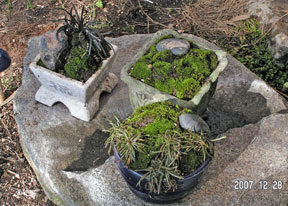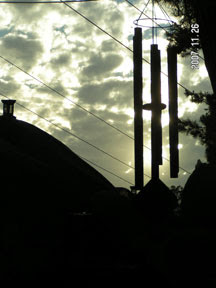Henry Beard and Roy McKie, “A dictionary for Weedpullers, Slugcrushers & Backyard Botanists”

It’s that time of year. I’ve received 8 seed catalogs so far, and new ones come every day. I’ve folded page corners on each catalog and I’m already way over budget. Of course, I’ve forgiven and forgotten my failures to germinate or thrive from last year’s crop.
But there’s one new catalog that I’ve already ordered from and received seed from, and I want to share my happy experience.
Pinetree Garden Seeds is in New Gloucester Maine – about as far as you can get from San Diego and still be in the continental US. I usually like to order seed from places closer to home, and I certainly have enough to choose from without trying a new company. But Pinetree’s was the first catalog I received and their tempting offerings were too much to resist. So I ordered some stuff on line.
I received the seeds promptly, but first, within a few days, I received a letter and a small refund check. I had impulsively ordered seed potatoes to be shipped in March, but failed to note that they can’t ship to California. The check was accompanied by a handwritten note suggesting a company in, I think, Oregon, that might be able to ship to California. So my very first experience was that, instead of politely pointing out to me that I didn’t’ read catalog's restrictions, they kindly referred me to another company and refunded my money.
Then the seeds came, all but one that was back ordered. Then, yesterday, the last pack of seeds came. That’s a lot of trouble for an order that was originally less than $50. Also, the seed packets are printed with “packed for 2008”, indicating they’re fresh. Some seed companies don’t bother to date their seeds, presumably so they can sell them indefinitely. I’ve learned to my disappointment that the germination rate decreases substantially when I plant seeds from undated packets.
While I have no experience yet to tell me that Pinetree seeds are going to like my climate, I suspect the appropriate seeds I’ve selected will do just fine. I have found a wonderful company, responsive and responsible, and I’m adding them to my small list of favorites. Their customer service is excellent. Best of all, Pinetree Garden Seeds exemplifies the thing I like best about gardeners - they share their information and experience generously with other gardeners. That’s not just good business, it’s good gardening.
















































